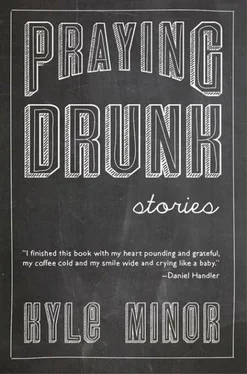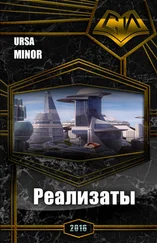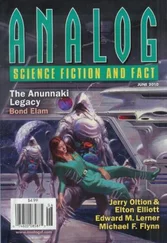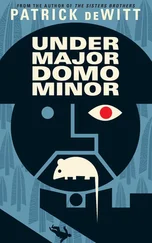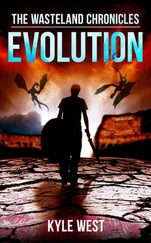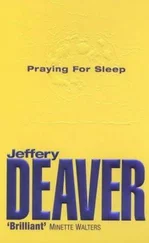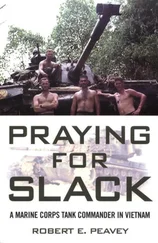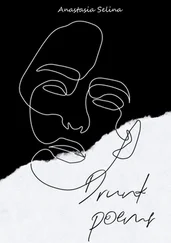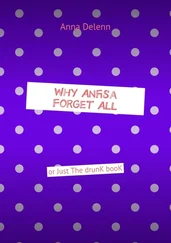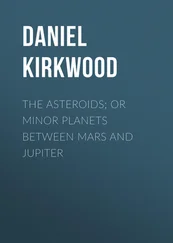And then I scaled that fence again, and ripped my pants some more, and that made me angry, ripping my pants. A state trooper a quarter mile away turned on his blue lights and raced toward me. I was standing beside the Chevy Corsica in ripped, shit-stained pants, my chest tighter, my neck hot, a shooting pain running down my left arm, watching the state trooper’s blue lights parading like fun-house ghosts against the front of my shirt.
The trooper opened his door and stepped out, and then he looked at me, and I looked at him, and I saw that he was Drew McKinnick. I could feel the beating of my heart through my body. I could all but hear the ringing in my ears, and those old, familiar words: “You need to get some humility, boy.” But then I could see that he wasn’t Drew McKinnick. He only bore a striking resemblance. The same cold intensity in his eyes, same square jaw, same dog teeth.
A couple of years earlier, a state trooper had pulled my brother over on a dark road — he was still in high school and wore his hair long — and yanked him out of the car by the arm and threw him over the trunk and threw him around a little, asked him if he knew what happens to people who hit cops.
My officer, when he got a closer look at me, puffed out his chest, straightened to his full height. He asked what I was doing climbing the fence by the interstate. He was almost grinning. What passed between us was not unfamiliar. It was a flash of mutual recognition, the thing that two individuals of certain types immediately know about each other. Minor and McKinnick. I felt very small.
I told him I was having a hard time and I had stopped to see a friend. I said I knew I should not have climbed the fence. I said I would be glad to get back in my car and be on my way. I asked if he’d let me. I said I was very sorry. I was ready for him to throw me around, knew he would.
He waited a long time. He did not ask for my driver’s license, and this troubled me. Whatever was going to happen between us was going to happen off the record. His nostrils flared when he breathed. He breathed hard. Each breath was like a calculated blow to the stomach. He put his hand on his holstered pistol. He looked into my eyes, measuring. I could not return his stare and shifted my focus to a fixed space beyond his shoulder, the white of the sky. “What happened to your pants?” he said, and I did not want to mention the fence. He seemed to find pleasure in my discomfort. He put his other hand on my shoulder and leaned over me so I had to look up again to meet his eyes. I told him I had ripped them on the fence. At that he grinned again, the predatory grin. His fingers dug into my shoulder. He said, “I don’t want to see you on the side of this interstate again. That’s a warning. I only give one. You understand?” I nodded. He sniffed the air, made a sour face. “Do yourself a favor and take a shower,” he said. He gave my shoulder one last squeeze, then a little shove as he let go and walked back toward his patrol car and got in and waited for me to drive away.
I stepped into my car and drove away, and he followed me all the way to the Indiantown Road exit, and then I exited and he kept going north. I pulled into a service station, and then I began to sob. Present or not, Drew McKinnick had undone what he had undone. I could feel him in the presence of the cop. His joy at intimidation. Somehow I had made it possible. My ears were ringing though they had not been slapped. Somehow I still carried McKinnick around inside me. I cried for a long time, and if I said that I was crying for Tony dying, that would be true, but it would also be a very, very small portion of the truth. Mostly, I was crying for the twelve-year-old boy standing beneath the starfruit tree on the asphalt path and waiting for his beating.
When I had cried all I could cry, I started the car again. I dug through my cassette tapes and found one that Tony had given me, as a joke. It was Parliament/Funkadelic’s Greatest Hits. We used to listen to that tape in the car all the time. I liked it more than he did.
I was listening to George Clinton go through the ministrations of “Atomic Dog”— Why must I feel like that, why must I chase the cat? — and then I was singing along, falsetto: Nothin’ but the dawg in me .
The cell phone rang, and I knew it must be my brother — he was in Nashville auditioning for a six-month touring gig playing bass guitar for a well-known country singer — and I didn’t even check the caller ID display. I answered and said, “Dr. Funkenstein here!”
And the voice on the other end was not my brother. It was Tony’s niece. She said, “Kyle?”
I said, “Oh, oh, I’m so sorry, I didn’t know.”
“It’s Tony,” she said. “He’s dead. He died a few minutes ago. I knew you’d want to know.”
I didn’t want to know. If this, dear reader, was a story like the kind I’d like to write, maybe there would have been a miracle. Most likely, Tony would die, but something else miraculous would happen. There would be a turn toward beauty that would reflect the joy-from-sadness in the prophet Isaiah’s words, the comfort: You shall go out with joy and be led forth with peace .
But I can’t do it. Not this time. At the funeral, when the other men who had been Tony’s pastors gave their portion of the eulogy, their words were full of comfort and hope. They were able to assure his family that Tony was in a better place, that he was, in fact, in heaven, with Jesus and the angels, held close to the bosom of God. But when it was my turn, I had no comfort or hope left to give. All I could say was that I loved Tony, and that he loved me, and that he was a stubborn and intractable person, and that I was, too, and that I believed, truly, that Tony had found his greatest joy in watching kung fu movies. That was all I could say. And when I was done, I stepped down from the only pulpit from which I had ever preached a sermon, and I walked past the altar, and down the steps, and down the aisle, and through the back doors of the church, and I have not been back since.
THE TRUTH AND ALL ITS UGLY
1.
THE YEAR MY BOY DANNY TURNED SIX, my wife Penny and me took him down to Lexington and got him good and scanned because that’s what everybody was doing back then, and, like they say, better safe than sorry.
He was a good boy and never got out of hand until he was seventeen years old and we got out of hand together. Around this same time Penny kept saying she was going to leave and stay with her sister in town. She said it enough that we stopped believing her, but the last time she said it, she did it. I remember the day and the hour. Friday, September 17, 2024. Quarter after five in the afternoon, because that’s what time her grandmother’s grandfather clock stopped when I kicked it over.
Danny heard all the yelling, and he came running downstairs and saw her standing there with her two suitcases and looked at me like I ought to do something. “Goddamn it, I’m not going to stop her,” I said.
“It’s your fault she’s going,” he said.
Penny hauled off and slapped his mouth. “I didn’t raise you to talk to your father that way,” she said, and at that moment I was of two minds, one of them swelled up with pride at the way she didn’t let him mouth off to me.
It’s the other one that won out. I reached back and gave her what she had coming for a long time now. I didn’t knock her down, but I put one tooth through her lip, hit her just hard enough so she would come back to us when she was calmed down.
She didn’t come back, though, and she didn’t go stay with her sister, who claimed not even to know where she was. One week, two, then on a Saturday me and Danny had enough. We hauled Penny’s mother’s pink-painted upright piano out the front door and onto the porch and then we pushed it off and picked up our axes from by the wood pile and jumped down on it. “You got to be careful, Danny,” I said. “There’s a tension on those strings that’ll cut you up bad you hit them wrong.”
Читать дальше
